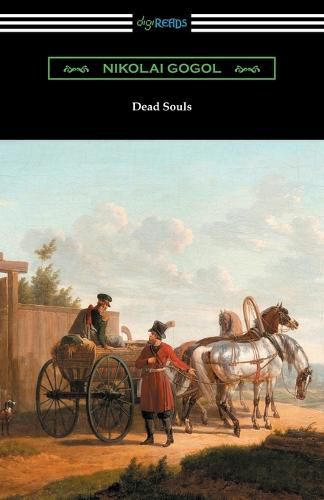Readings Newsletter
Become a Readings Member to make your shopping experience even easier.
Sign in or sign up for free!
You’re not far away from qualifying for FREE standard shipping within Australia
You’ve qualified for FREE standard shipping within Australia
The cart is loading…






First published in 1842, Dead Souls is the story of Chichikov, a young middle-class gentleman who comes to a small town in Russia with a dubious plan to improve his wealth and position in life. He begins by spending beyond his means on the premise that he can impress the local officials and gain standing and connections in the community. At the heart of his plan is the idea of acquiring dead souls or more explicitly serfs of landowners who have died since the last census. Since the taxes of landowners are based upon the number of serfs that they employ, Chichikov believes that the landowners will be all too happy to part with these dead souls . Legend has it that Gogol supposedly produced a third part to the novel which he destroyed shortly before his death. Despite ending in mid-sentence and with portions from the second part which seem to be missing it is generally accepted that the novel is extant. A satirical gem, Gogol’s Dead Souls exemplifies his particular gift of exhibiting the true failings of humanity in all their absurdity. This edition is printed on premium acid-free paper, is translated by C. J. Hogarth, and includes an introduction by John Cournos.
$9.00 standard shipping within Australia
FREE standard shipping within Australia for orders over $100.00
Express & International shipping calculated at checkout
Stock availability can be subject to change without notice. We recommend calling the shop or contacting our online team to check availability of low stock items. Please see our Shopping Online page for more details.
First published in 1842, Dead Souls is the story of Chichikov, a young middle-class gentleman who comes to a small town in Russia with a dubious plan to improve his wealth and position in life. He begins by spending beyond his means on the premise that he can impress the local officials and gain standing and connections in the community. At the heart of his plan is the idea of acquiring dead souls or more explicitly serfs of landowners who have died since the last census. Since the taxes of landowners are based upon the number of serfs that they employ, Chichikov believes that the landowners will be all too happy to part with these dead souls . Legend has it that Gogol supposedly produced a third part to the novel which he destroyed shortly before his death. Despite ending in mid-sentence and with portions from the second part which seem to be missing it is generally accepted that the novel is extant. A satirical gem, Gogol’s Dead Souls exemplifies his particular gift of exhibiting the true failings of humanity in all their absurdity. This edition is printed on premium acid-free paper, is translated by C. J. Hogarth, and includes an introduction by John Cournos.